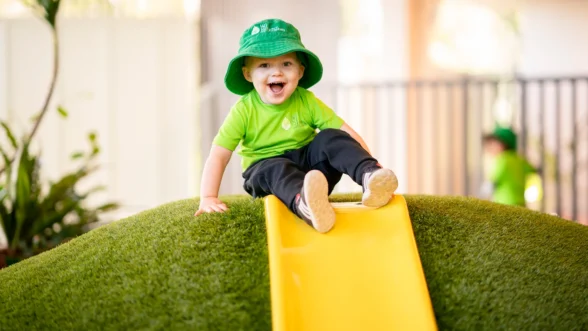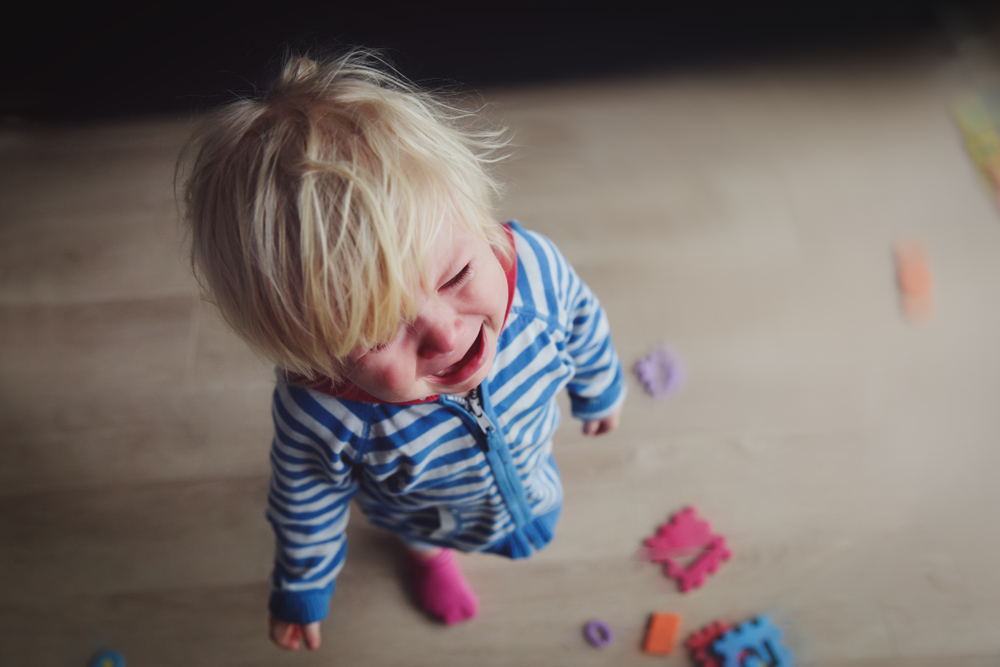
Education, Wellbeing
Useful tools, Wellbeing
06 July, 2026

Sarah Padbury has helped a number of children deal with grief, not only throughout her 15 years as a child psychologist, but also in her personal life.
“I’m a mum of two cheeky boys, and I’m passionate about helping parents and teachers bring out the best in our little people,” says Sarah. “Having lost our home in Black Saturday in 2009, I have seen first-hand the devastation traumatic events can have on children and young people.”
Grief is a part of life – we don’t get the good without the bad. But while we can’t protect our children against everything, one thing we can do is equip them (and ourselves) with the skills they’ll need to get through.
“Once we find a healthy way to integrate the bad news into our lives and tolerate the uncomfortable and sad feelings, we can begin to process things and move forward one small step at a time,” says Sarah. “In the long term, depression and anxiety can appear when we don’t find a healthy way to process that bad news.”
Knowing that grief is a topic many parents don’t want to discuss with their children – or think about themselves – we asked Sarah the hard questions.
How can a parent tell if their child is struggling with grief?
All children will respond differently, but the key thing to look out for is sudden change, particularly changes to behaviours and interactions. This may include difficulty sleeping, decreased appetite and changes in behaviour – for example becoming more aggressive or withdrawing from social activity. In younger children, a regression in toilet training is a sign that they may be feeling very stressed. In older children and young teens, difficulty concentrating and paying attention can be a sign of stress and may require additional support.
When should a parent seek professional help for their grieving child?
Parents should consider seeking help for their little people when the behaviours don’t abate once the crisis is over or when the changes in presentation are having a significant impact. All parents have intuitive ways of managing their children’s mental health and when they feel like they have run out of tools, that’s the time to seek help. Your child’s teacher is an amazing source of information about how your child is travelling and whether additional support may be needed.
Parents need to also consider when they need help themselves, especially when impacted by the grief of loss or disaster. When you fly in an aeroplane, they always say in the safety briefing that if the oxygen masks are released, fit your own before fitting your child’s. You are not being the best parent you can be if you are struggling to manage your own mental health. Parenting is hard and messy at the best of times, and we all need support.
Should parents restrict the amount of bad news their children are exposed to?
As a parent I have noticed that the 6 o’clock news is no longer really appropriate for primary school children. Once the most popular TV show around the dinner table, it now contains very raw and distressing footage that is difficult for children to process. It’s important for children to know what is happening around the world and at home, but the footage is often not appropriate for younger children. I don’t think it’s necessary however to restrict what children are told – it’s how they are informed that makes the difference. Don’t assume your kids don’t have an awareness and encourage them to ask questions of you as parents. We can’t shield them from the bad news of the world – it’s a part of life – but we can deliver this news sensitively and appropriately.
Do you have any tips for parents whose children have lost a hero?
Death is unfortunately a part of life and children cannot escape their childhood unscathed by grief and loss. For parents whose children have lost a sporting hero or celebrity they admired, it’s a great opportunity for parents to model healthy ways of grieving. In the wake of Kobe Bryant’s death, it was lovely to hear children remember all the great things he did for the sport and what a great father he was. We can help children by commemorating lost loved ones, planting a tree or flower, or putting a picture in a frame. Acknowledge that children often feel an attachment to these celebrities as if they knew them and can feel quite overwhelmed.
Do you have any tips for parents of children who have been impacted by natural disaster?
What I’ve observed is that children will seek an example of how to manage from their parents and loved ones. When the adults around them are struggling to cope, the children will too. When parents can remain calm, the children will too. With the Black Saturday fires, it took five to eight years for the effects to be understood, when the children who were five in 2009 were old enough to put a narrative to their experience and explain how they were impacted. The little people are watching you to see how to behave. Talk to your children and tell them what’s happening – they are more scared of the things they don’t know rather than the things they hear. Allow them to ask questions about what is happening and answer them honestly but gently.
Do you have any tips for parents of children who have lost a friend?
Losing a friend is very difficult for a child to process. Children often struggle with the concept and finality of death and video games where they ‘re-spawn’ or ‘re-launch’ confuse them even further! Parents can support their children by telling them the facts in an age-appropriate way. Whether another child has died from an illness or accident, children need some (age appropriate) facts to make sense of. It’s important to then separate the grieving child from the deceased child as children will often assume they may suffer the same fate.
I worked with a family whose nine-year-old died from neuroblastoma and the first sign was her eye turning. The poor optometrist in town did not know what hit him with many children suddenly convinced there was something wrong with their eyes. Encourage children to talk about and commemorate their lost loved one in a healthy way and always give them the opportunity to ask lots of questions and to express the emotions they are feeling. Reassure them that it’s okay to feel sad and help them organise and make sense of big emotions.